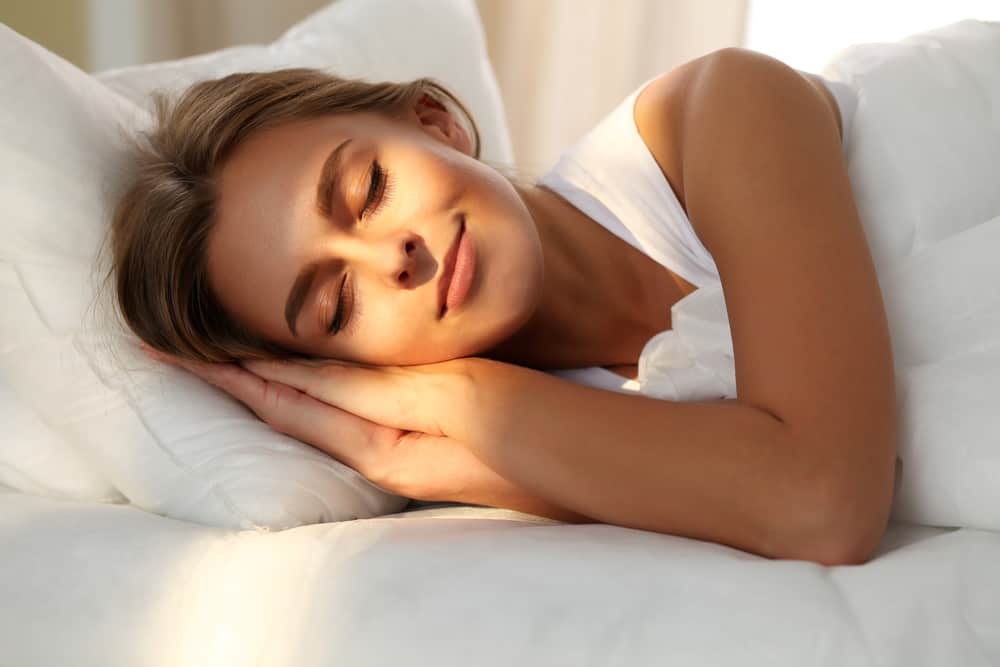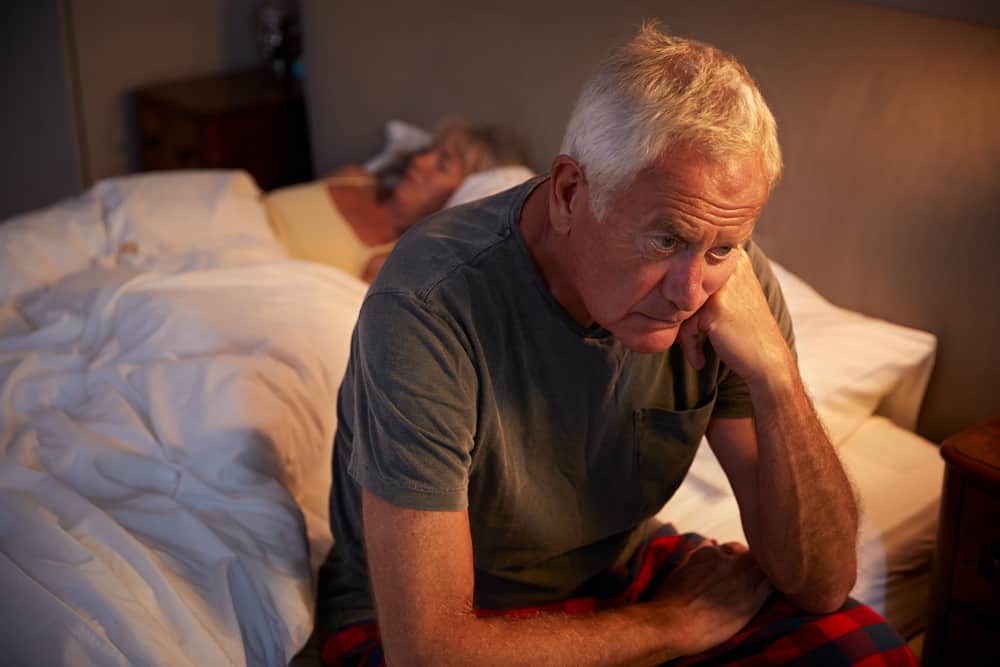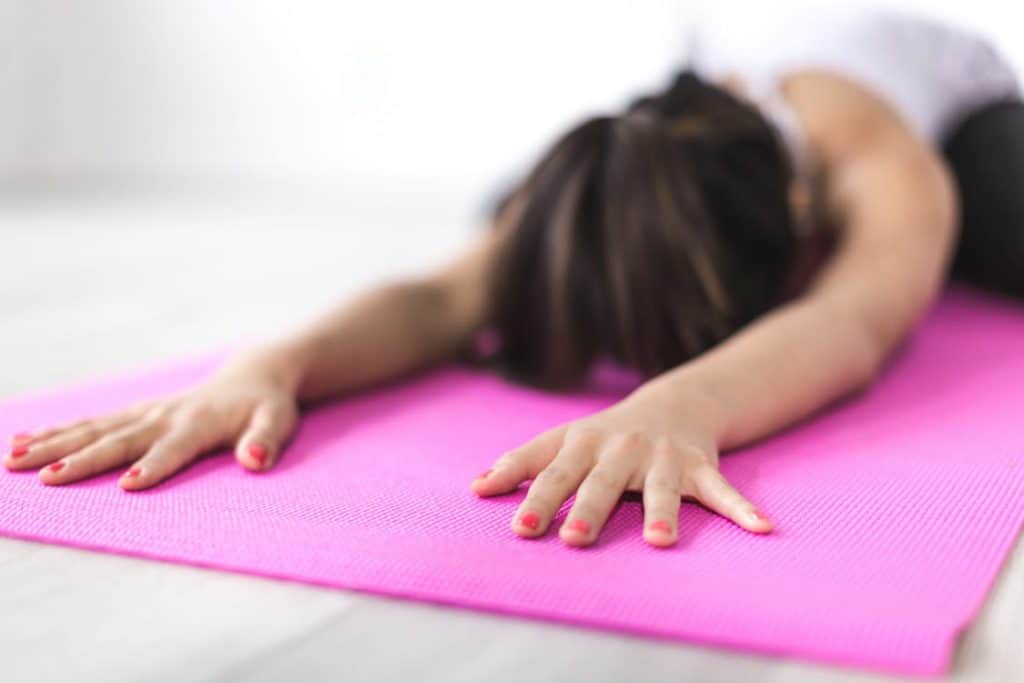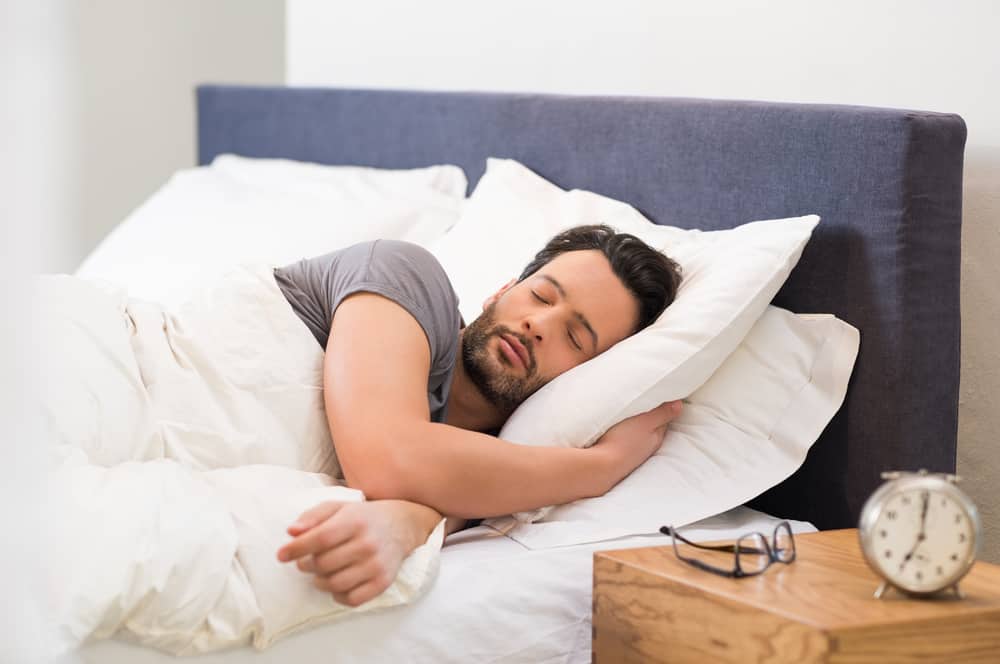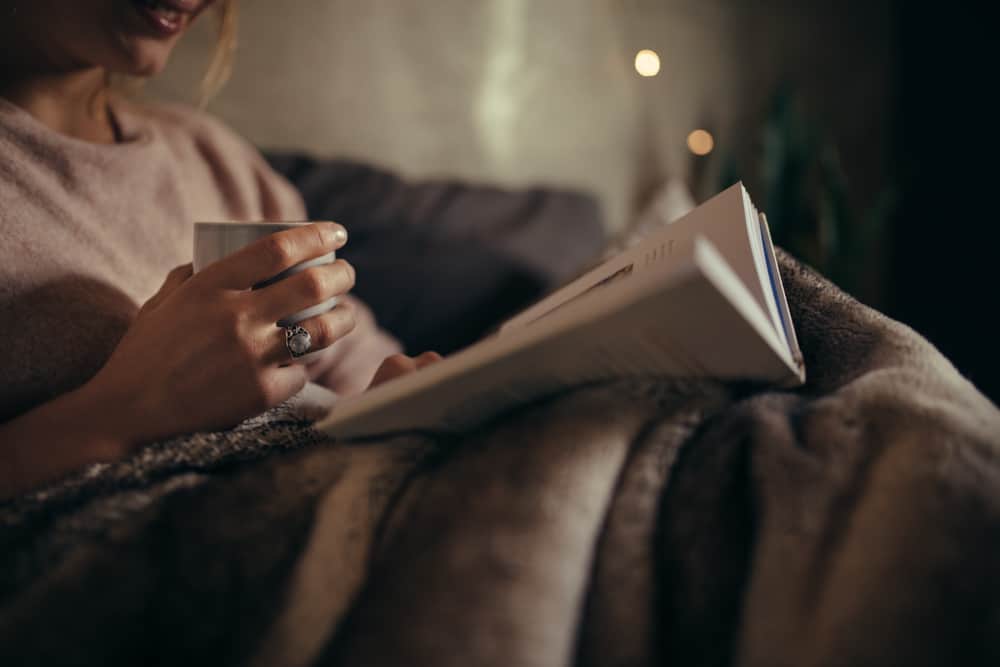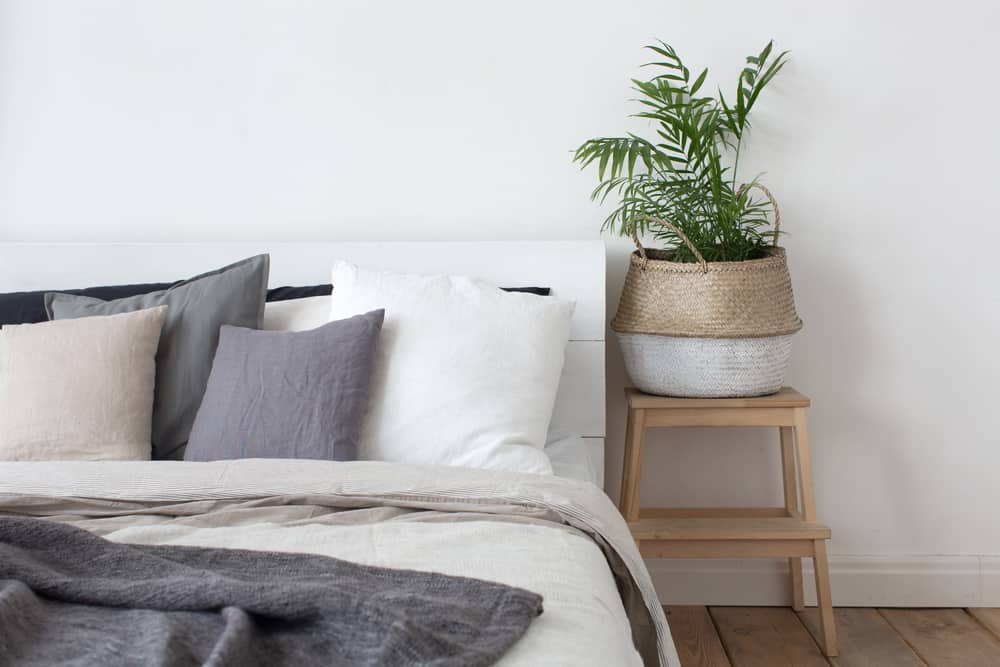Sleep is extremely important for all human beings, from newborns through to the elderly, for a wide variety of different reasons such as mood regulation, having the energy to go about daily activities and in order to maintain good overall health. There are times in life when it can be tricky to achieve a quality seven to nine hours of sleep each and every night. When suffering from mental health illness including depression and/or anxiety, our capacity to sleep well can be reduced.
To give ourselves the best chance at achieving optimal health (physical, mental and emotional), it is very important that we value our sleep and implement the strategies or habits we can (sleep hygiene) in order to sleep well and therefore feel our best. Specifically, good sleep is vital for our health in the following ways:
- it improves our concentration, attention span and decision-making ability
- it improves our memory
- it improves productivity and performance
- it enables us to maintain a healthy weight
- it may reduce stress and the likelihood of illness
- it increases emotional stability
- For more information on ‘Why Sleep Is Vital For Good Health’, please click here.
Where you have ongoing trouble sleeping at night regardless of how tired you may be feeling when heading to bed, you may be suffering from a common sleep problem known as insomnia. Whether you struggle with falling asleep, staying asleep, waking regularly throughout the night, or in some cases waking much earlier than you normally would, insomnia may be an issue for you.
Waking up and going about your daily activities feeling un-refreshed and/or un-restored can be very challenging and as a result you may struggle to regulate your moods as well as complete activities in an energetic manner. Insomnia has the capacity to largely affect your quality of life, particularly in the case of chronic insomnia. It can affect your ability to focus and perform in certain situations such as at school or work and can decrease your normal reaction time. You may find yourself feeling sleepy throughout the day and perhaps irritable as well.
Short term (or ‘acute’) insomnia is not uncommon, particularly in adults whereby you are experiencing an unusually high amount of stress or suffering from trauma. Acute insomnia usually resolves itself within a few weeks as stress levels decline. Long term (or ‘chronic’) insomnia in comparison is insomnia that exists for a month plus (at least three nights every week). Chronic insomnia can have a negative impact on mental health illnesses such as anxiety and depression as well as physical health problems/illnesses, for example: high blood pressure or heart disease.
Insomnia may be an issue in itself (primary insomnia) or a symptom of another condition (secondary insomnia). For more information on the many different causes of insomnia, please be sure to read our article ‘What Causes Insomnia?’ by clicking here.
‘Sleep hygiene’ refers to regular habits or a routine you follow before going to bed, with the aim of achieving quality and restful sleep (and therefore optimal daytime energy levels as a result). Quality sleep is not necessarily about the number of hours you spend in bed (particularly if some or many of those hours are spent awake or “tossing and turning”), but rather how many hours of solid sleep you achieve overnight. Sleep needs (i.e. number of hours each night) differ between age groups (for example, a young child often requires much more sleep than an adult), and sleep needs can also be affected by illness and/or lifestyle.
The habits that may make up your pre-sleep routine (i.e. sleep hygiene) may include just a small handful of things, or a number of different activities. It’s all about discovering what works best for you in order to achieve the best sleep you can each and every night (and these habits may change over time). Let’s take a look now at a number of different habits you may wish to include in your sleep hygiene routine before heading to bed.
Sleep Hygiene – Habits For Achieving A Solid Sleep
Prioritise Exposure To Natural Light
Exposing our bodies to sunlight throughout the day can assist our brains to understand when it is time to be alert (sunlight hours) and falling asleep (darkness). Getting outdoors into natural light over the course of the day can help to align our circadian rhythm (i.e. internal body clock) with the light and dark of nature.
Due to the modern-day demands of school, university, work and/or lengthy travel times, getting sufficient time in natural light can be challenging. Taking a few minutes (especially) in the morning, in between classes/meetings, at lunchtime, or at the end of your day can be of great benefit for your sleep come evening time.
Be Sure To Check Your Medications
A wide variety of medications can interfere with sleep, such as those taken for the common cold, allergies, asthma, depression, thyroid issues, heart disease and high blood pressure. Even some contraceptive pills have the potential to negatively impact sleep. Research and speak to your pharmacist as to whether insomnia is a possible side effect of any of your prescription (and any relevant over the counter) medications.
Reasons some medications can interfere with achieving a quality sleep include:
- their makeup (for example, stimulants, alcohol, steroids and/or hormones)
- their function (e.g. diuretics)
- whether they disrupt natural processes (including the production of the sleep hormone melatonin)
Make Regular Exercise A Part Of Your Weekly Routine
Regular exercise over the course of your week can help to promote a sound, quality night’s sleep. This is due to a variety of reasons, including assisting the body to release stress and endorphins as well as physically tiring the body (thereby preparing it for rest overnight).
Morning exercise can be particularly beneficial for waking up the body, especially when paired with exposure to natural light. It is important to note that intense exercise completed not long before heading to bed can cause you to have trouble falling sleep (due to the need to cool down afterwards, for example).
Avoid Taking Or Limit Naps During The Day
Short (less than 30 minutes) naps can be beneficial for some people e.g. for improved mood, alertness, memory and performance. Although, it is helpful to note that though napping during the day may assist you to better manage the remainder of your day, it is not a substitute for nor can it make up for poor sleep overnight.
If you find yourself feeling exhausted during the day and feel the need to nap, do so before late afternoon and try not to snooze close to your bedtime. It is recommended you keep your nap to a maximum of 30 minutes, otherwise you risk falling into a deep sleep which can cause you to feel even sleepier once waking and this deep sleep during daylight hours may confuse our body clock and make it more difficult to get to sleep and sleep solidly once night time rolls around.
Carefully Monitor Your Caffeine And Alcohol Consumption
- Caffeine: Many people look to coffee (a stimulant) for a kickstart in the morning. However, coffee is not the only place caffeine is found – it also exists in a number of other beverages (such as green and black teas and some soft drinks) as well as foods (e.g. chocolate). As a result, consumption of caffeine-containing foods and drinks both in the latter half of the afternoon and evening can stop us from being able to drift to sleep with ease.
- Alcohol: Though alcohol is a sedative and a glass or so of your favourite alcoholic beverage may help you to feel drowsy before falling asleep, alcohol can in fact cause you to wake regularly overnight and can prevent you from getting a solid night’s sleep (not to mention possible overnight toilet stops).
Prepare What You Can For Tomorrow Before Bed
Laying in bed mulling over all you need to do the following morning and day can stop you from falling to sleep in a reasonable amount of time. Instead, do your best to take some time before bed to prepare any items you can for the following day. This may include:
- selecting and laying out your clothes, accessories and shoes
- choosing and sitting aside your exercise gear
- packing your bag
- preparing what you can of your breakfast and/or lunch
Not only may this assist you to have less to think about as you head to bed, it can also assist you to streamline what you need to achieve when you get up the next day.
Clear Your Mind Of Tomorrow’s (Or The Week’s) Activities Before Bed
Just as physically preparing your items for the following day (such as your clothes, breakfast, lunch, etc.), writing a to-do list of the following day’s (and the week’s, if beneficial) activities can release your mind of the need to mentally keep a list of all you need to achieve the next (and coming) days. This can also help to reduce any anxiety the following morning about what you need to do over the course of the day.
Your list may include items such as appointments, deadlines, family/social commitments, errands, housework tasks as well as relaxation time.
Dim Any Lighting Approximately An Hour Before Bed
In addition to limiting the amount of blue light our electronic devices produce, it can also help your body to make the connection that it is soon time to sleep by dimming any lighting you can around your home roughly an hour before you sleep. Using candles (where safe and appropriate) can be another option to reduce harsh light sources before sleep.
Switch On ‘Night Mode’ On Your Devices
As much as you can, a minimum of one hour before bedtime, switch on ‘night mode’ on your devices, including your mobile phone, tablet, laptop and/or TV. Blue light stimulates our mind and is designed to keep us alert, and as a result, light from electronic devices can disrupt our ability to fall asleep within a reasonable amount of time. An alternative to switching on ‘night mode’ on your devices which is increasing in popularity is to invest in a pair of glasses that are designed to block blue light.
Deal With Any Stress Before Heading To Bed
Stress, whether it be mental, physical or both, is often a contributing factor to insomnia. Whatever the cause of any stress you may be experiencing, do your best to deal with any stress you feel before heading to bed at night (to reduce the likelihood of it keeping you awake).
Having a conversation with a loved one in order to release any emotional tension or concerns or jotting down on a piece of paper anything that is worrying you (and even better, any possible solutions to any problems you are experiencing) are two great ways to relieve your brain and body of stress before preparing for bed. Gentle stretching before bed can also help to relieve your body of physical tension.
Practise Gratitude
Practising gratitude on a regular basis can be a very helpful tool for increasing happiness levels as well as for reducing feelings of depression. Hence, practising gratitude in the evening before bed can help our minds to feel content which may help us to fall asleep peacefully.
You might like to try jotting down the things you are grateful for on a particular day in a ‘gratitude journal’. What might these things include? Perhaps a kind gesture or loving support from your partner/family/friend, the warm sunshine on your face or the delicious meal you ate for dinner. When we look closely, more often than not, we have an immense number of things to be grateful for.
Enjoy A Relaxing Activity Before Bedtime
What you find relaxing may differ to the next person, however – it is important that you find an activity (or multiple activities) you enjoy doing in order to relax your body and mind in preparation for sleep.
You may wish to consider enjoying one (or more) of the following activities in the hour or so before sleeping:
- having a warm bath or shower
- doing some light stretching/yoga
- listening to gentle music
- reading a book/magazine, etc. (non-stimulating content)
- listening to a relaxing podcast or audiobook
- drinking a warm caffeine-free drink
- mindfulness meditation
Avoid Consuming A Heavy Meal Before Sleeping
Consuming a heavy meal, for example – a very spicy or largely greasy meal, close to bedtime can prevent us from falling asleep comfortably, as our body tries to digest what we have eaten. Where possible, try to refrain from eating a particularly heavy meal before bed, in order to avoid being kept awake from a “full” tummy, heartburn, etc.
Avoid Consuming Excess Fluids Before Bedtime
Consuming excess fluids before going to sleep can cause our tummies not only to feel overly full, but can also result in a number of interruptions to our sleep overnight, thanks to the need to empty our bladder!
Try To Maintain Consistent Bed And Waking Times
As much as your lifestyle permits it, going to bed and waking up at the same time every day can help your body to recognise when it is time to rest in the evening and when it is time to get up and get going in the morning. It is a good idea to try and stick to this rule not only on weekdays, but on weekends too.
In saying that, there may be days where we feel tired a little earlier in the evening than normal, or in some cases, we feel tired a bit later than our regular bedtime. As much as sticking to a consistent bedtime can be helpful for sleeping solidly on a regular basis, going to bed a little earlier or later than normal on the odd occasion (so long as you are listening to your body) may be more beneficial than (a) forcing yourself to bed at your normal time and laying there awake for a significant amount of time or (b) winding up overtired from forcing yourself to stay awake when exhausted and therefore having trouble sleeping later in the evening.
Establish A Bedtime Routine That Works Best For You
Establishing a specific routine that you follow each evening in the lead up to sleep can help you to not only relax and unwind before bed, but can also help to signal to your body that bedtime and sleep are approaching.
You might wish to include one or more of the relaxing activities discussed previously in addition to one/more of the following:
- preparing what items you need to for the following day
- writing down your to-do list for tomorrow/the week
- dimming relevant lights
- turning your electronics onto ‘night mode’
- drinking a warm caffeine-free drink (e.g. peppermint tea)
- putting on your pyjamas and brushing your teeth
- writing in your gratitude journal
Having Trouble Falling Asleep Within A Short Time Or Waking Overnight And Struggling To Get Back To Sleep?
If you find you cannot get to sleep after attempting to do so for twenty minutes or more, or you are waking overnight and struggling to get back to sleep, the following things may help you to relax before trying again:
Practising Mindfulness Meditation
Mindfulness meditation refers to the practice of focusing the mind (meditation) on the present moment (mindfulness). Mindfulness meditation is a very helpful tool which can be used to focus our attention on the present moment (e.g. by concentrating on our breathing) rather than worrying about being unable to sleep (or any other concern, for that matter).
If you aren’t very familiar with mindfulness meditation or basic mindfulness meditation exercises you can implement in order to help you relax (and eventually sleep), you may find our article ‘Beginners Guide To Mindfulness Meditation For Depression And Anxiety’ useful. This article includes three different options re: mindfulness meditation exercises which you may find handy when struggling to sleep in the evening/overnight. (Mindfulness meditation can be practised at any time of day and can help to calm the mind and leave you feeling more relaxed).
Hop Up and Sit Elsewhere In Your Home And Engage In A Relaxing Activity
It is important we do all we can to establish a healthy connection between our mind and bed i.e. laying in bed ruminating over the fact we cannot sleep can make it increasingly difficult to get to sleep (and cause us to associate bed with feeling frustrated rather than calm and relaxed). If you have been laying awake in bed for 20 minutes plus with no luck falling to sleep, it can help to hop up from bed and sit elsewhere in your home in dim light (for example, on the couch by a warm lamp) and engage in a relaxing activity until you feel sleepy and ready to attempt sleeping again. You might like to do some light reading, drawing or listen to some gentle music.
Practise Repeating Sleep Affirmations
Positive affirmations are purposefully thought or spoken statements that assert something positive to be true. There a number of positive affirmations that can be spoken with the aim of helping you to relax and fall asleep. Check out this link for some handy examples.
Make Your Bedroom A Comfortable Sanctuary Ready For Sleep
Invest In The Right Mattress
The right mattress should not only leave you feeling comfortable and supported, but should also offer enough room for both you and your partner to both sleep comfortably and soundly without interrupting one another’s sleep.
Opt For The Most Comfortable Pillows And Bed Linen
The right pillow for you can come down to the way you sleep (i.e. on your side, your back and/or your tummy) as well as to personal preference re: how firm you like it and what it is made from.
Choosing the correct bed linen for comfort and the purposes of staying warm in winter and cool in summer is also very important.
Ensure Your Bedroom Is As Dark As Possible
Keeping your room dark is important for the brain to register that it is time to sleep. Light sources that may interrupt your sleep may include lights outside your windows or bedroom door(s) or light from the face of your alarm clock, any devices (e.g. mobile phones) as well as any heating and/or air-conditioning units. It is best to reduce light from these (and any other) sources as much and as safely as possible.
In order to combat any residual light that may disturb your sleep, you may wish to utilise blackout curtains or shades and/or choose to wear an eye/sleeping mask. Additionally, do your best not to stare at your alarm clock through the night, which can increase feelings of anxiousness re: being unable to sleep.
Keep Your Bedroom Quiet
It is no secret than noise can keep us awake and stop us from staying asleep. Noise may come from outside, from other rooms of your house, from electronic appliances or devices, your partner sleeping next to you or any pets sleeping in or nearby to your bedroom – just to name a few examples. Do what you can to keep any noise when sleeping to a minimum.
You might like to consider using a ‘white noise’ machine, suitable ear plugs or even an app to help block out other sounds when you are trying to sleep.
Keep Your Sleeping Environment Cool
It is important that our sleeping environment is cool in order for us to get to sleep and sleep soundly. Achieving this may involve investing in appropriate blinds or curtains and the right bedding to suit your temperature preferences, as well as operating a fan or air-conditioning unit overnight (where safe/appropriate).
Keep Your Bedroom Minimalistic
Clutter in our bedroom can contribute to our minds being unable to switch off when it’s time to sleep. Do your best to keep clutter under control in your bedroom. It can help to give yourself five to ten minutes at the start and end of each day to tidy your bedroom.
Ensure Your Bedroom Serves Two Purposes Only
Number one = sleep. Number two = intimacy. Bringing other activities into the bedroom that distract our mind from these two primary purposes can stop us from relaxing and falling to sleep (such as work or study materials).
Place A Notepad And Pen Nearby Your Bed
If you find yourself kept awake by things you need to do or racing and/or repetitive thoughts overnight, it can help to keep a notepad and pen nearby your bed so you can jot down any to-do items and/or thoughts keeping you from sleeping soundly.
Tips To Get Your Day Started
Exposure To Morning Sunlight
Getting morning light or sunshine (depending on the weather!) is a great tool for signalling to our body that it is time to wake and be alert, in order to get on with our day. Similarly, exposing our body to light in the morning helps to maintain a consistent body clock.
If you wake before the sun rises or have difficulty accessing natural light in the morning, you can also look to purchase a light box (which imitates natural light and can help to signal to your body it is time to wake up and get going).
Avoid Snoozing Your Alarm Where Possible
Once we are woken by an alarm, any sleep that follows before the next alarm is very unlikely to be quality sleep. As a result, as much as you can, avoid (especially repeatedly) snoozing your alarm. Instead, you might like to set your alarm for a little later in the morning and get up after fewer snooze cycles.
General Tips For Making Changes To Your Sleep Hygiene
- Make Small Changes To Begin With And Work Your Way Up: It can be overwhelming implementing an array of different activities into your pre-sleep routine all at once, so don’t be afraid to start small (e.g. with one or too tools) and see how you go practising that consistently before adding anything further to your routine.
- Have Patience: It can take some time to work out the best strategies for you with regards to improving your sleep. Stick with it and take the time to work out what suits you best. It can help to write down in a ‘sleep diary’ what you decide to try in order to determine the most effective habits for you.
- Try To Reduce Any Worries About Sleeping: Feeling anxious about being unable to sleep well unfortunately can further fuel the problem. If sleep is a real issue for you, it is best to seek professional assistance from a qualified person experienced in treating insomnia (and any underlying mental or physical health issues i.e. in the case of secondary insomnia, where applicable).
As you have discovered from this article, our sleep is very important for maintaining not only great physical, mental and emotional health but also a high quality of life. There are a number of tools or habits you can implement as part of your pre-sleep routine (i.e. sleep hygiene) that may assist you to fall asleep more easily and achieve a solid sleep overnight.
However, it is very important that if you struggle with insomnia regularly, you seek professional help to overcome it, in order to feel and function at your very best. Please don’t hesitate to contact our friendly and professional team at Blissiree Pty Ltd for assistance with your insomnia, so you can get back to sleeping soundly and feeling great as a result, as soon as possible.

